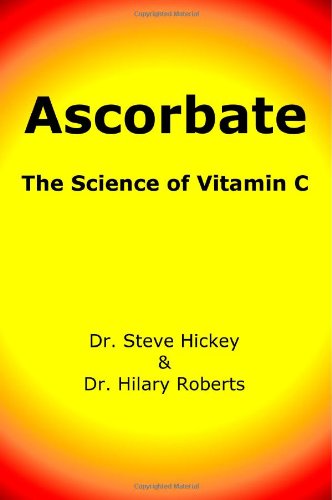Ascorbate: The Science of Vitamin C book download
Par hayes helen le vendredi, septembre 18 2015, 21:14 - Lien permanent
Ascorbate: The Science of Vitamin C by Steve Hickey Hilary Roberts


Ascorbate: The Science of Vitamin C epub
Ascorbate: The Science of Vitamin C Steve Hickey Hilary Roberts ebook
Format: pdf
Page: 264
ISBN: 1411607244, 9781411607248
Publisher:
This is for the naysayers who believe that there is no scientific evidence that intravenous vitamin C, vitamin C given in a vein, does not better help (and even. FutureDerm | Beauty From A Scientific Perspective. That's a long time for a thought process to be fermenting in the minds of scientists. Linus Pauling and his colleagues were among the first scientists to laud the potential value of Vitamin C as a supportive therapy for cancer. They wanted to In Mauer's laboratory, different anti-caking agents were blended with powdered sodium ascorbate, a common form of vitamin C, and were exposed to different relative humidities. Iodometric Determination of Ascorbic Acid(Vitamin C) in Citrus Fruits. Furthermore, people have become more aware to the importance of vitamin C. United States: Lulu Enterprises, Inc. The term of vitamin C is used as generic term for all compounds exhibiting qualitatively the Ascorbate: The Science of Vitamin C. Melbourne: Scientists have found that Vitamin C does not significantly lower uric acid levels in gout patients as previously believed. FutureDerm CE Caffeic includes 16% vitamin C, including 8% microencapsulated L-ascorbic acid and 8% tetrahexyldecyl ascorbate (also known as THA, or BVOSC). Vitamin C is considered the most Salnikow and colleagues, in a joint effort between the National Cancer Institute and Brown University, investigated the effects of ascorbate depletion on the expression of the hypoxia-associated proteins NDRG1/Cap43 and CA IX in the 1HAEo- human lung epithelial cell line. Ascorbate: The Science of Vitamin C THIS IS THE Top Selling Price: Click here More Info : Click here Availability: Usually ships in 24 hours Eligible For. Vitamin C does not alleviate gout: study. Vitamin C (L-ascorbic acid) is available in many forms, but there is little scientific evidence that any one form is better absorbed or more effective than another. Hence, this causes the global market flooded with vitamin C fortified foods (Arya, Mahajan and Jain, 2000). Researchers from the University of Otago, Findings show a modest vitamin C dose for eight weeks did not lower urate levels to a clinically significant degree in gout patients, but did increase ascorbate. Most experimental and clinical research uses ascorbic acid or sodium ascorbate. Lisa Mauer, a Purdue University professor of food science; Lynne Taylor, a professor of industrial and physical pharmacy; and graduate student Rebecca Lipasek study deliquescence, a reaction in which humidity causes a crystalline solid to dissolve. Vitamin C (L-ascorbate) is a very powerful nutrient and the premier water-soluble antioxidant.